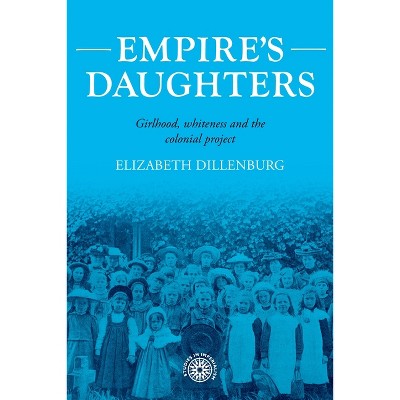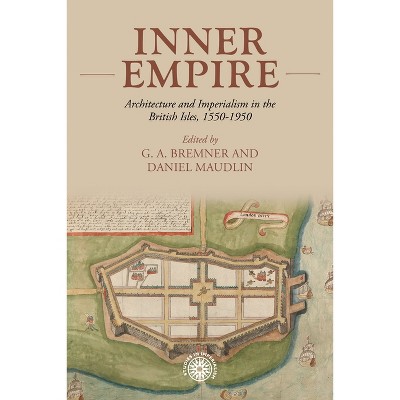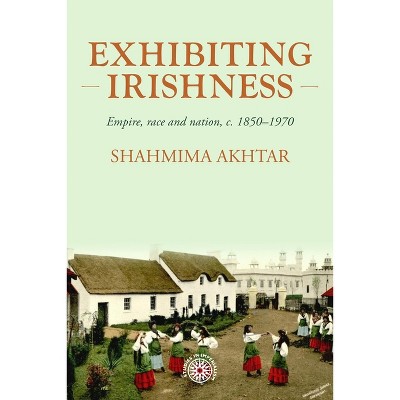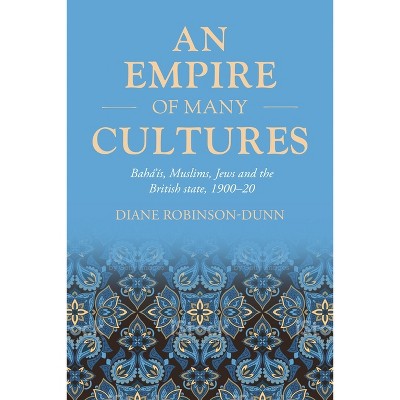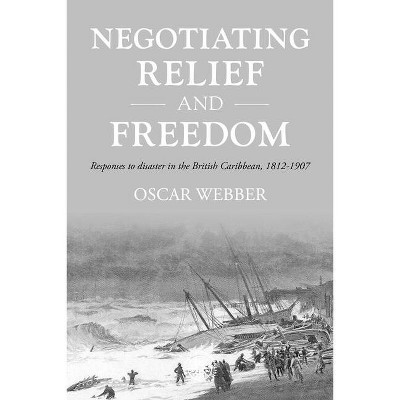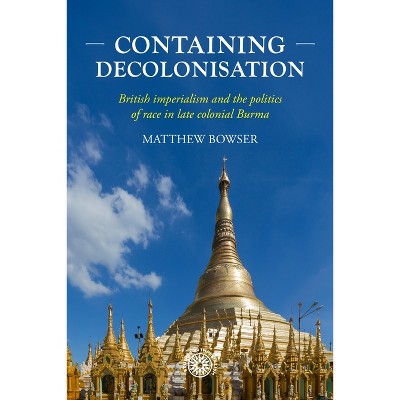Protestant Missionary Children's Lives, C.1870-1950 - (Studies in Imperialism) by Hugh Morrison (Paperback)

About this item
Highlights
- Protestant missionary children were uniquely 'empire citizens' through their experiences of living in empire and in religiously formed contexts.
- About the Author: Hugh Morrison is Associate Professor of Education at The University of Otago/Otakou Whakaihu Waka, New Zealand
- 272 Pages
- Political Science, Imperialism
- Series Name: Studies in Imperialism
Description
About the Book
Protestant missionary children's historical lives are examined from the perspectives of parents, churches and children, to reveal complicated existences. This book takes a comparative approach across a range of settings, drawing on oral history, childhood history and histories of emotion. It extends scholarship into the mid-twentieth century.Book Synopsis
Protestant missionary children were uniquely 'empire citizens' through their experiences of living in empire and in religiously formed contexts. This book examines their lives through the related lenses of parental, institutional and child narratives. To do so it draws on histories of childhood and of emotions, using a range of sources including oral history. It argues that missionary children were doubly shaped by parents' concerns and institutional policy responses. At the same time children saw their own lives as both 'ordinary' and 'complicated'. Literary representations boosted adult narratives. Empire provided a complex space in which these children navigated their way between the expectations of two, if not three, different cultures. The focus is on a range of settings and on the early twentieth century. Therefore, the book offers a complex and comparative picture of missionary children's lives.From the Back Cover
This book brings to light the lives, experiences and feelings of a range of children born into British world missionary families. Missionary children were an important but relatively hidden part of the modern Protestant missionary movement. As 'empire citizens', their lives were shaped by both political and religious contexts or imperatives. Taking a comparative approach that includes children from Britain (especially Scotland); settler societies like New Zealand; and the United States of America, Protestant missionary children's lives offers a new contextual and relational model to understand historical lives.
The volume takes a comparative approach across a range of settings, drawing on oral history, childhood history and histories of emotion. Protestant missionary children's historical lives are examined from the perspectives of parents, churches and children. Focusing on the late nineteenth and early twentieth centuries, the book explores the ways in which missionary children were represented through popular literature, and how they negotiated their way within spaces defined by imperialism and colonialism. Their lives emerge as a complex mix of ordinary and complicated, more kaleidoscopic than they were monochrome. These children were both the authors of their own lives and the products of their unique contexts.
This book will appeal to scholars in the fields of mission and religious history; childhood and youth history; as well as scholars interested in the intersection of imperial-era mission/childhood history with education, literature, emotions and migration.
Review Quotes
'This is an impressive history of a group until now overlooked in studies of imperialism. In addition to institutional and other adult perspectives, extensive interviews give voice to the children themselves. Drawing upon the history of emotion and memory to enrich his analysis, Morrison sensitively captures the complex significance of missionary children's lives.'
--Katie Pickles, The University of Canterbury/ Te Whare Wananga o Waitaha
About the Author
Hugh Morrison is Associate Professor of Education at The University of Otago/Otakou Whakaihu Waka, New Zealand





